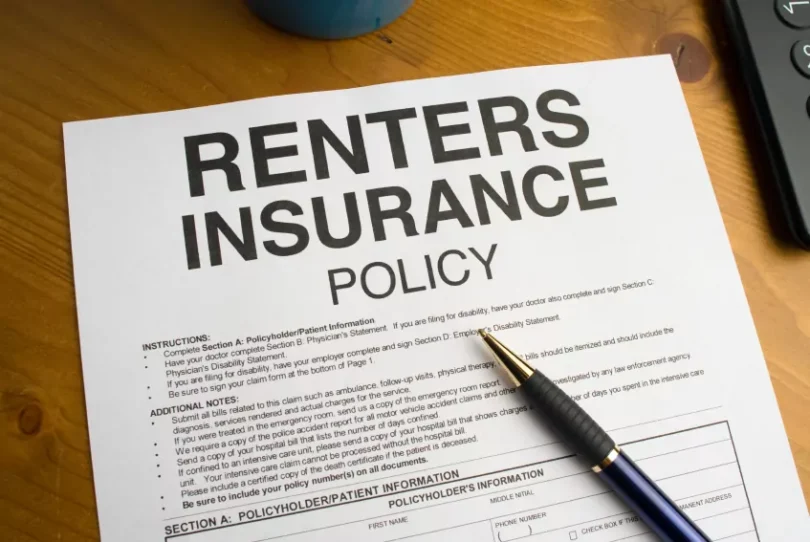Advertisements
Whether you’re renting an apartment, condo, or single-family home, it’s essential to understand the value of renters insurance. Many renters mistakenly assume that their landlord’s insurance covers their personal belongings, but this is not the case. Renters insurance is a low-cost yet highly effective way to protect your property, liability, and peace of mind.
In this article, we’ll explore what renters insurance is, what it covers, and why it’s a smart financial decision for anyone leasing a home.
What Is Renters Insurance?
Renters insurance, also known as tenant insurance, is a type of policy designed to protect individuals who rent their living space. It covers personal belongings, liability in case of injury or damage, and additional living expenses if you’re temporarily displaced from your rental due to a covered event.
Unlike homeowners insurance, renters insurance does not cover the structure of the building itself—your landlord’s policy is responsible for that. Instead, it focuses on protecting your personal property and financial liability.
High-CPC Keywords Targeted in This Article
To enhance SEO performance and advertising value, this article includes high-cost-per-click insurance-related keywords such as:
Advertisements
- What does renters insurance cover
- Cheapest renters insurance quotes
- Compare renters insurance online
- Renters insurance for apartments
- Best renters insurance for tenants
- Why you need renters insurance
- Renters insurance cost and benefits
What Does Renters Insurance Cover?
Renters insurance is more comprehensive than many people realize. A standard policy typically includes the following:
1. Personal Property Coverage
Protects your belongings from damage or loss due to:
- Fire and smoke
- Theft and vandalism
- Water damage from plumbing issues
- Windstorms and hail
- Electrical surges
Covered items may include:
- Furniture
- Electronics
- Clothing
- Appliances
- Jewelry (with coverage limits)
2. Liability Protection
Covers you if you’re legally responsible for injury or property damage to others. For example:
- A visitor slips and falls in your apartment
- Your dog bites someone
- You accidentally cause water damage to another unit
3. Additional Living Expenses (ALE)
If your rental becomes uninhabitable due to a covered loss (e.g., fire), this feature helps pay for:
- Temporary housing
- Food
- Transportation
4. Medical Payments to Others
Provides coverage for medical expenses if a guest is injured in your rental space, regardless of fault.
Why Do You Need Renters Insurance?
1. Your Landlord’s Policy Does Not Cover You
Landlord insurance only covers the building’s structure, not your belongings. Without renters insurance, you are solely responsible for replacing lost or damaged property.
2. Affordable Financial Protection
Renters insurance is one of the most cost-effective insurance policies, with average premiums ranging from $10 to $25 per month, depending on location, coverage limits, and insurer.
3. Liability Coverage Safeguards Your Finances
One accident or lawsuit could result in thousands of dollars in damages. Liability coverage helps protect your savings and assets.
4. Peace of Mind
Knowing your belongings and liability are covered provides comfort and stability in uncertain situations, from break-ins to natural disasters.
5. Required by Landlords
Many property management companies and landlords now require proof of renters insurance as part of the lease agreement.
How to Choose the Right Renters Insurance Policy
1. Determine Your Coverage Needs
Create a home inventory and estimate the value of your belongings to determine how much personal property coverage you need.
2. Compare Multiple Insurance Providers
Get quotes from top-rated companies such as:
- State Farm
- GEICO
- Allstate
- Lemonade
- Progressive
- USAA (for military families)
3. Review Policy Limits and Exclusions
Check if there are sub-limits on high-value items and whether additional riders are needed.
4. Consider Bundling Options
Many insurers offer discounts if you bundle renters insurance with auto insurance, potentially saving 10% to 20%.
5. Check Customer Reviews and Ratings
Choose a provider with strong financial ratings and a reputation for efficient claims handling and customer service.
Who Should Get Renters Insurance?
- Apartment renters
- College students in off-campus housing
- Tenants in condos or townhomes
- Anyone renting a house Renters insurance is essential for anyone leasing a living space, regardless of the size or location of the property.
Conclusion
Renters insurance is a smart, affordable investment that offers protection far beyond what most tenants expect. From safeguarding your personal belongings to covering liability claims and temporary housing costs, renters insurance delivers valuable financial security at a low monthly price.
Whether you’re a first-time renter or moving into a new space, take a few minutes to compare quotes and choose a renters insurance policy that fits your lifestyle and budget. With the right coverage in place, you can focus on enjoying your home—knowing you’re protected when the unexpected happens.
Need help comparing renters insurance quotes or understanding your coverage options? Let me assist you in finding a policy tailored to your needs and location.
Advertisements






